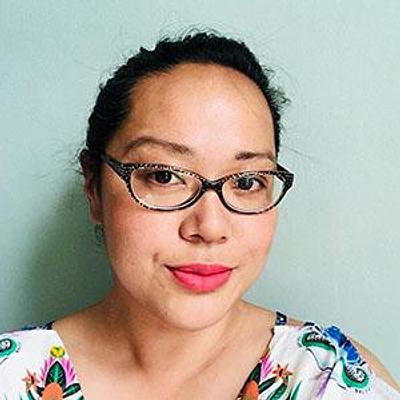Looking for all Articles by Maisie Chan?
How to build professional relationships as a children's author
Award winning children's author Maisie Chan shares her tips for building professional relationships.

Writing a children's book is only one element of being a children's author. The other part is knowing about the publishing industry, and knowing where your book would sit in the market (and on the bookshelf in the bookstore) and how to continue to grow as an author once your book comes out.
Look at what other authors are doing
If you are writing a children's book, you should read recent children's books, you should know who the best children's authors are to follow (social media makes this much easier). Take note of what those authors are doing to promote their books, how do they present themselves? What kind of bookish themes or messages do they align themselves with? We can always learn a lot by observing other children's authors to see how they conduct themselves and who they network with socially and professionally. Can you create your own networks and writing community?
Make connections where and when you can
I enjoy the professional development aspects of being an author and I began that journey way before my first novel came out (Danny Chung Does Not Do Maths was published in 2021). I had been writing creatively since 2006 and in that time, not only was I honing my craft, but I was making connections. I don't mean I was aggressively going to lots of networking events or publishing meet-ups and telling everyone how great a writer I was (and I have seen other people do that! My advice would be – don't!) I was consistently trying to make connections locally, regionally, and nationally with writing organisations and other writers. When I was published, I looked back over the connections I had made and utilised some of them, letting them know I had a new book out and I was available for festivals, interviews, and talks. I also share resources I see online with various writing groups I belong to.
Find any suitable organisations to join
One of the best ways to learn about writing children's books is to look at organisations such as the Society of Children's Book Writers and Illustrators (this link will open in a new window)(SCBWI British Isles aka 'Scooby'). There is a Scottish SCBWI group which is very good for meeting aspiring, emerging and professional writers. They hold events, online and in-person, and you can join a critique group. There is a membership fee for the year. For those new to children's books, I would recommend joining. But make sure you engage with what is being offered, otherwise the membership fee is a waste of your time and money. There is a free Facebook group for the British Isles that anyone can join, and you can ask questions about writing for children and publishing without having to be a member.
Consider courses, conferences and competitions
There are also reasonable course and an online conference by WriteMentor. They offer mentoring, workshops, and courses, often led by well-established children's authors. Some aspiring children's authors do sign up for expensive masters like the ones at Bath Spa University and Winchester University. However, I don't think they are essential, especially if you don't have the money. You can find other ways to hone your craft. Most published authors I know have invested time and money into becoming writers by going on courses, finding mentors, and continually learning about what kind of author they want to be and what possibilities are out there for being an author. Anyone can become an author now with self-publishing possibilities and a few earn more than traditionally published authors who are signed with well-known publishers. It's not easy to be self-published, yet some authors prefer it. Doing research about all possible ways you can get your writing to readers should be considered.
Scottish Book Trust also support new and emerging writers with New Writer Awards,(this link will open in a new window) workshops, and competitions. Writing competitions are a good way to write to deadlines, build up your publication record and get to know other writers. Writing development agencies around the UK can offer courses, signpost opportunities and can host networking opportunities with agents and publishers.
Reach out via social media or in-person events
Social media is great for meeting new writers and finding out about opportunities in children's publishing. I am sad to see the decline in Twitter as it was one of the ways that I met many children's authors, publishers, agent and writing organisations. Instagram is okay but obviously you need to post photos as well as text. I also use Facebook to also network. If you do not want to use Facebook for personal use, then create an account just for writing. If social media isn't for you, then seek out other ways you can attend events, such as book festivals and writing retreat centres such as Moniack Mhor and Arvon that host tutor-led courses where you can meet other writers and hone your craft.
Post publication, Twitter and social media was a way for me to connect with teachers and librarians, who are some of the main gatekeepers for buying children's books. The reading teacher's community has been instrumental in getting my books into schools. I contacted indie bookshops myself offering signed bookplates (and promo sweets) in exchange for a pre-order link to my novels. Again, it's best to offer rather than demand.
Writing a novel can be lonely, as can debuting a novel. It was useful for me to join a debut authors group and I keep in touch with many of them now. Debuting is an emotional rollercoaster, so having writing peers to offer support and advice was and is useful.
I've been offered work from various editors who have seen me on social media. I've also had a website since 2007 (even before I had written a novel). It was a 'shop front' if you will, a window into my identity as a writer, and a way for people to get in touch with me (I don't have my email out there publicly; I use a contact form). Having a website looks professional and I often search for people's websites when I want to know about their writing.
Being professional and reliable is important at each stage. And don't forget to enjoy being a writer!
